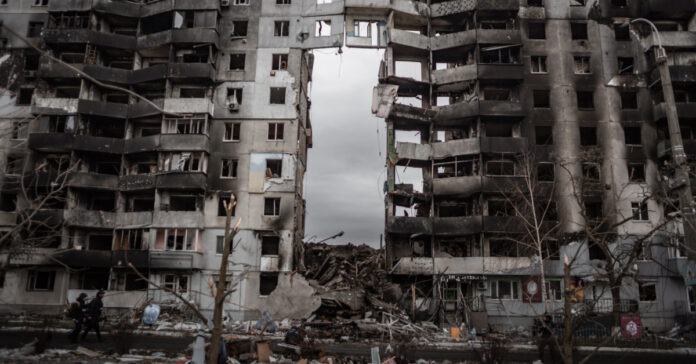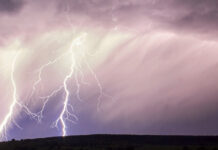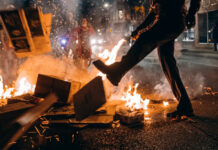Have you noticed that the war is Ukraine is getting more attention, and not for good reasons? Is this because the tide is turning against Ukraine, or is it a publicity effort to generate enthusiasm for sending more money, ammunition, and weapons systems for Ukraine? Or both?
For example, it seems indisputable that Russia is making some headway as Ukraine runs low of the soldiers and munitions needed to fight back. Recently, Ukraine lost the city of Avdiivka plus several smaller towns when Ukraine withdrew in disarray and Russian troops advanced.
Yet it is also clear that Ukraine is shooting down a surprising number of Russian military aircraft and may already have F16s in the air. They are also having success in the Black Sea against the Russian Navy.
Ukraine is also causing more damage deep inside Russia, striking oil production facilities and metals processing sites. You can argue Russia should expect this, since they strike deep into Ukraine, but even if they deserve it, it represents an escalation. With Europe planning to send more long-range missiles and Ukraine developing and producing more drones, the number of the attacks inside Russia could grow.
Then you have the NATO chief saying, “Ukraine will join NATO. It is not a question of if, but of when.” That’s like waving a red flag in the face of an angry bull. One reason Putin invaded Ukraine was because the U.S. refused to say Ukraine would never join NATO.
Then there is the New York Times reporting Ukraine is a hotbed of U.S. spies who not only trained Ukrainian troops after Russia took Crimea in 2014 but built an elaborate intelligence-gathering operation in Ukraine with bunkers, hackers, and intelligence intercepts. Yet more provocation for Putin.
Worse to Come
French President Emmanuel Macron has raised the possibility of sending European troops to Ukraine. “We will do anything we can to prevent Russia from winning this war,” he said.
Doesn’t sound like peace will break out anytime soon, does it? It sounds rather like yet another straw closer to breaking the camel’s back, the camel in this case being Putin’s restraint. As the threats pile up and the attacks in Russia grow worse, he will face a choice: fight back with conventional weapons and possibly lose to the superior air power of the U.S. and NATO or take the initiative and strike first and fast with nukes.
Other participants at the conference where Macron spoke called it “bluster.” But does Putin believe it is bluster? Or will he see it as a threat? Many times, early bluster became later reality. It will be interesting to see if the Russia escalates the war after their elections, which run March 15 through 17.
Defense Secretary Lloyd Austin said Thursday that if Russia is victorious in Ukraine, they will inevitably square off against NATO. If you look at his remarks, he said this not because he expects NATO to rush to the Ukraine’s aid, but because he thinks Russia will continue its aggressive behavior and attack a NATO member. Poland is preparing for such an eventuality, as are the Baltics and the Scandinavian countries. It’s Western Europe and more Southern regions that don’t yet feel threatened. Germany and France need to remember how quickly the ground war covered Europe in WWII and step up the preparations.
Two Dangerous Paths
Europe, the U.S., and to a lesser extent the world are facing two kinds of danger. The first is a prolonged ground war that consumes people, war material, and budget dollars. The second is a war that includes the use of nuclear weapons. Worse yet, we may see the former followed by the latter.
It seems threats and bluster from one side is encouraging threats and bluster by the other. Thanks to spies, lies, and a media establishment that would rather distract us with celebrities than convey bad news about war, we don’t know what to believe. The danger is that some participants may not, either. At some point, a combatant may believe the bluster and do something that cannot be undone, taking an action that pushes the war over the tipping point.
The value of a proxy war, if any war can be said to have “value,” is that your troops are not in danger. Placing NATO troops in Ukraine erases that advantage. If we sent NATO troops to Ukraine, does anyone think this will cause Russia to back off? Of course not. So why threaten to do so? Far better to threaten what happens if Russia attacks a NATO member than to put troops in Ukraine, in harm’s way.
Shaky Ground
When you combine the costs of war with the amount of debt the U.S. is building—adding a trillion dollars to the deficit every 100 days—It’s hard to foresee a positive outcome. When the amount of interest required to service the debt approaches and soon surpasses the defense budget, we are in dangerous territory. There is more than one way to lose a war, and being sent into a recession, a depression, or an outright economic collapse is a dangerous possibility.
Interestingly, the U.S. dollar looks strong when compared to a basket of other currencies. I guess it is good to be the one-eyed man in the land of the blind, but don’t let that give you a false sense of security. There is a reason gold hit an all-time high on Friday; there are those out there who can see the emperor has no clothes.
In Washington, the echo chamber tells the White House what it wants to hear and the old man at the top lacks the sense to question it. Out in San Jose, on the other hand, the hi-tech layoffs tell another story. That story is repeated in the meat and produce aisles of your local grocery store. The same story is repeated in the auto dealer parking lots and in the offices of mortgage brokers and realtors. These are tough economic times. People are struggling to make ends meet. Crime is rising. Many people are disillusioned. War won’t make things any easier.
An Election Year
I am relatively well prepared, but I am not resting on my laurels, and neither should you I see the end of this year as being a period of uncertainty and danger, especially November through January. Not only is it too soon to predict who will be our next president or which party will win congress, it is too soon to predict what they might do in the war, economically, or to our domestic policy. I consider it an inflection point. What happens after that point is unpredictable, and that can be dangerous. Things could get worse, or they could get better. It’s always better to prepare for the worst and hope for the best.








